With Cardiff named the sixth most at risk city for sea-level rise impact, local communities are taking action following flooding caused by Storm Bert
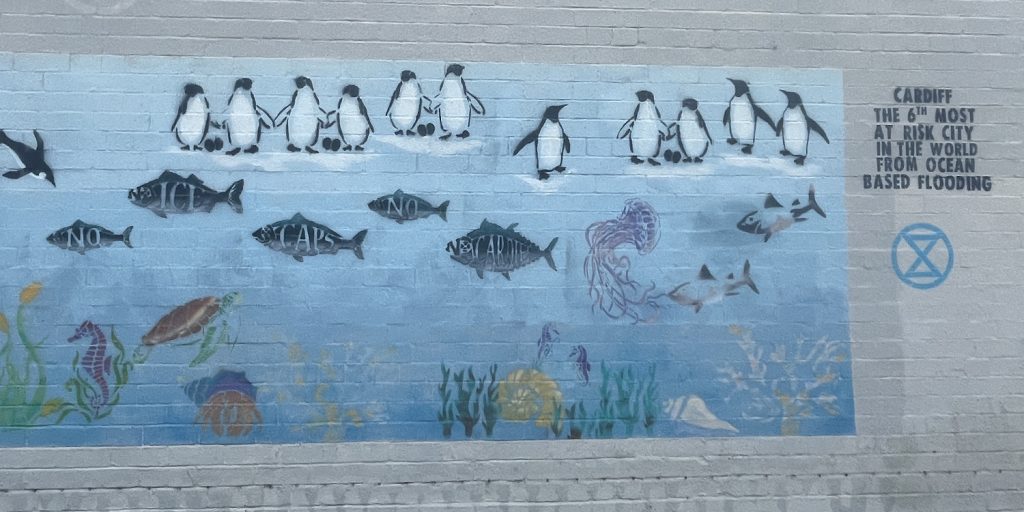
Image: Molly Baker
Tree trunks submerged in murky water, ducks swimming along the pavements, riverbanks reaching breaking point, homes and shops destroyed. This isn’t some distant reality in a country far away. This is happening to Cardiff right now.
In 2020, the property company Nestpick named Cardiff the sixth most at-risk city for global warming impacts by 2050, looking at factors including sea level rise, climate shift and water shortage. Although not under the same level of threat as cities such as Bangkok and Amsterdam, the Welsh capital appears on the list’s top ten, with particularly high concern for potential sea level impact. Rising sea levels can lead to storm surges, causing devastation in coastal areas through severe flooding and coastal erosion.
Flooding poses an imminent threat to communities in Cardiff and its surrounding areas, with the Natural Resources Wales (NRW) 2024 report revealing that one in seven properties in Wales are at risk from flooding, a rise from the 2023 statistic.
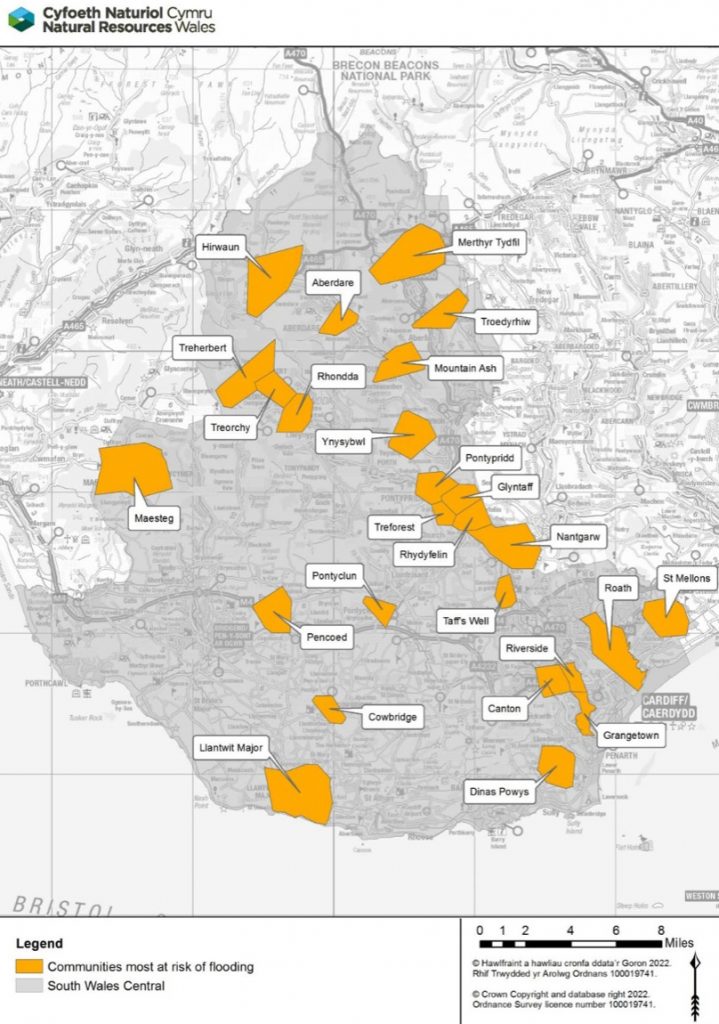
A map published by the NRW showing the communities across the south central Wales that are most at risk of flooding from rivers and the sea
Image: National Resources Wales
Breaking the banks
In the wake of Storm Bert in November, communities and homes in south Wales have suffered damage and devastation. The River Taff reached record river levels and the Welsh government confirmed 433 properties across Wales were hit with flooding.
South Wales was one of the worst affected areas by the storm, with two severe flood warnings detailing risk to life being issued by the NRW, following over 100mm of rain in some places.
A 2024 report by a team of leading environmental scientists found that climate change is causing storms across the UK to be more frequent and intense.
Jane Davidson, chair of the Wales Net Zero 2035 Challenge Group and former Welsh government minister for environment and sustainability, said: “I think the key thing is to think about Storm Bert in the context of the evidence that suggests that it has been made substantially worse because of the issues around climate change.”
“If we carry on not acting,” Davidson warns, “we are going to get other and worse storms.”
The Cardiff Coastal Defence Scheme is a £35 million flood defence system primarily funded by the Welsh government, spanning 1.5 km across the shore.
Work began earlier this year and aims to protect 2,800 properties from rising sea levels and provide defence against severe weather events, allowing for the effects of climate change.
A council spokesperson said they were prioritising communities throughout the construction and encouraging them to become involved with flood management programmes.
“The key to successful flood risk management is to involve and work with everyone affected,” they added, “whether that’s through individual projects, or through city-wide strategic and policy-based projects.”
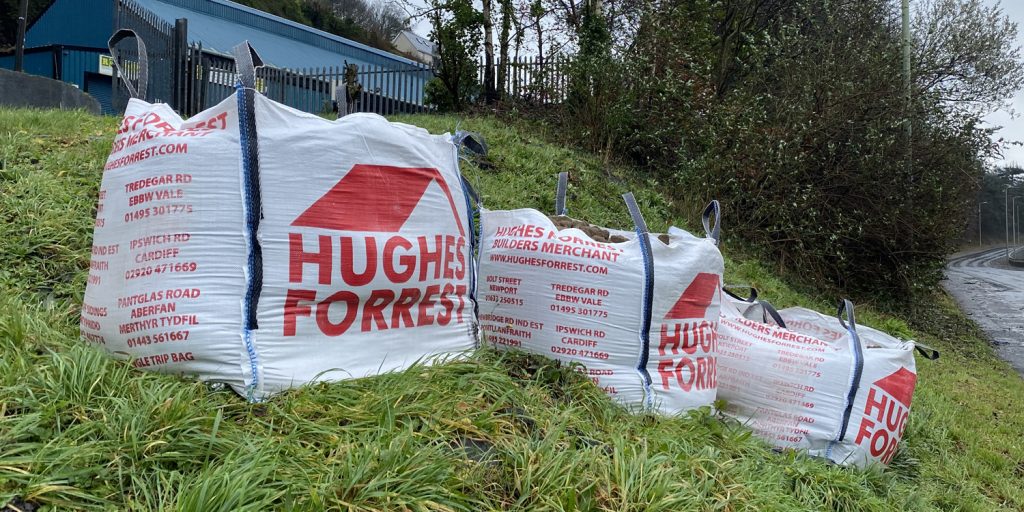
Image: Molly Baker
The Welsh government also highlighted their plans for flood defence in the 2020 National Strategy for Flood and Coastal Erosion Risk Management in Wales (FCERM). The strategy focuses on five main objectives including improving prioritisation and communication of risk and providing an effective and sustained response to events.
After the River Taff’s banks burst, and the consequential damage it caused to properties in Pontypridd and other areas of south Wales, many feel that a lack of preparation and communication is to blame.
Scorpion Automotive Solutions, a garage in Pontypridd, was hit with flooding, causing devastation to the business and customers’ cars to be submerged. Gareth Davies, the business’ owner, said there was no warning from local authorities prior to the storm. He said that residents in the local area got in touch with him to help following the storm, but the local council refused to help.
“It has ruined the business as far as equipment and trust from customers,” Davies said.
Breaking new records
According to a study by the charity Climate Outreach, 41% of people in Wales say they feel motivated to take action on climate change themselves. The research also showed that the increased risk of floods is one of the top five reasons that Welsh people are worried about climate change.
Taff Tidy is a community-led project aiming to clean the River Taff, encouraging the people directly affected by climate impact to take matters into their own hands through engaging with their local environment.
One person can’t tackle climate change alone, but collectively we can
In March, the group is holding its biggest event yet through a world record attempt for the most participants cleaning a river in the highest number of places along the Taff. The confirmed locations so far include Cardiff, Pontypridd and Merthyr Tydfil, with the project’s co-founder Kate Strong hoping for a turnout of at least a thousand. The aim of the world record attempt is to raise awareness of the threat climate change poses to local communities and encourage people to take action.
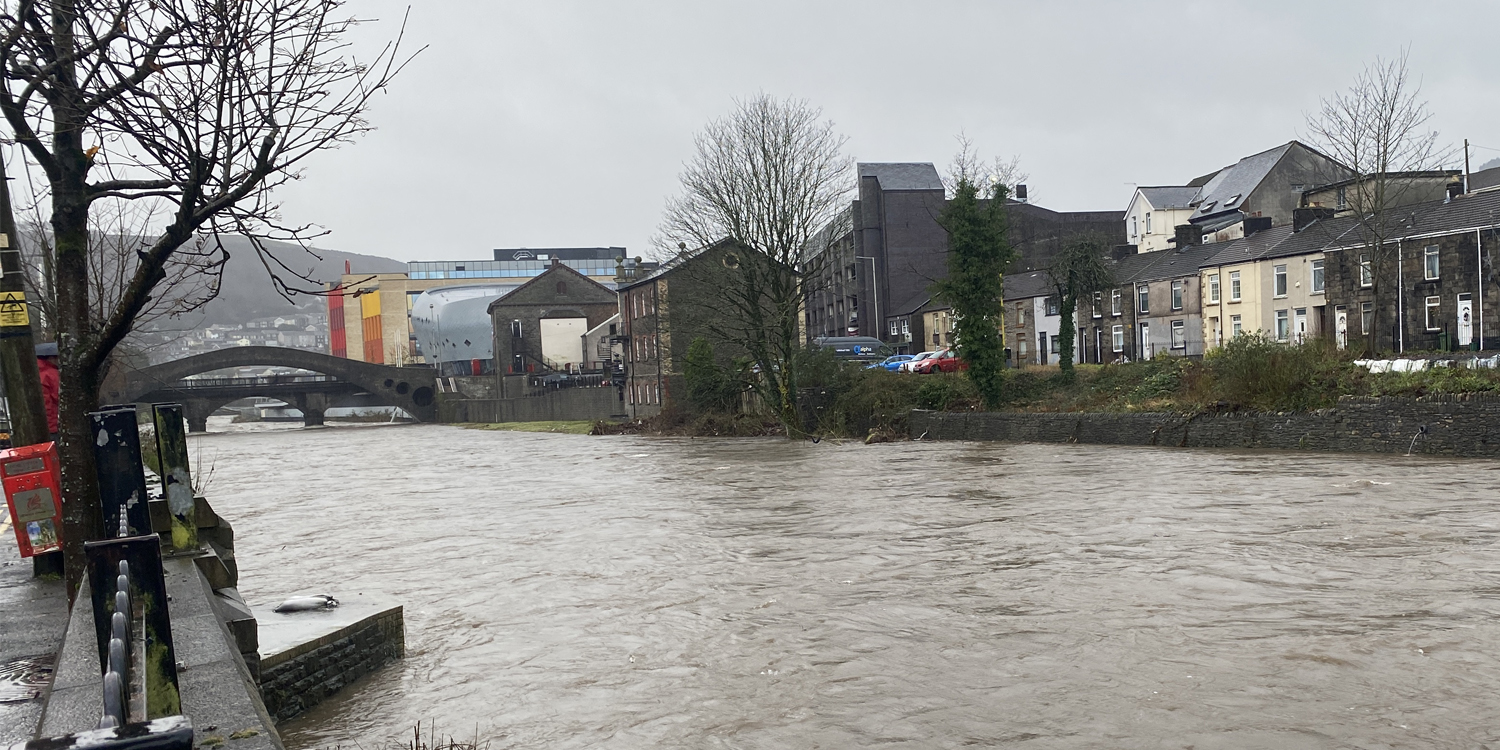
What can you do to tackle climate related flooding?
Join community groups and climate campaigns.
Clean rivers and beaches from rubbish and debris.
Start the conversation and help raise awareness.
Stay informed and sign up for flood alerts from local authorities .

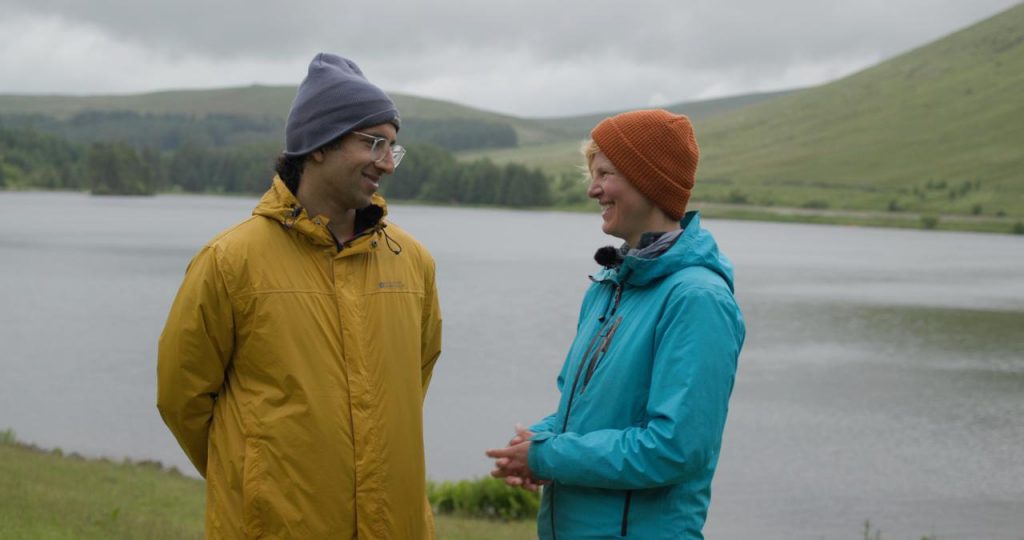
Images: Limestone Media
Strong, a climate activist and author, said: “It’s going to open up the conversation to community members who I call the inert masses, people who care but don’t take action yet. This is a way to show them that it’s really easy, it’s actually quite fun to get involved.”
“Hopefully this brings together the importance of working together,” she adds. “One person can’t tackle it alone, but collectively, we can.”
As shown by the damage caused to homes and businesses by Storm Bert, and the threat further flooding poses to south Wales, climate change is directly affecting communities in Cardiff.
“It isn’t happening somewhere in the Maldives,” said Strong. “It isn’t happening somewhere else in the world. It’s happening right here, right now.”
